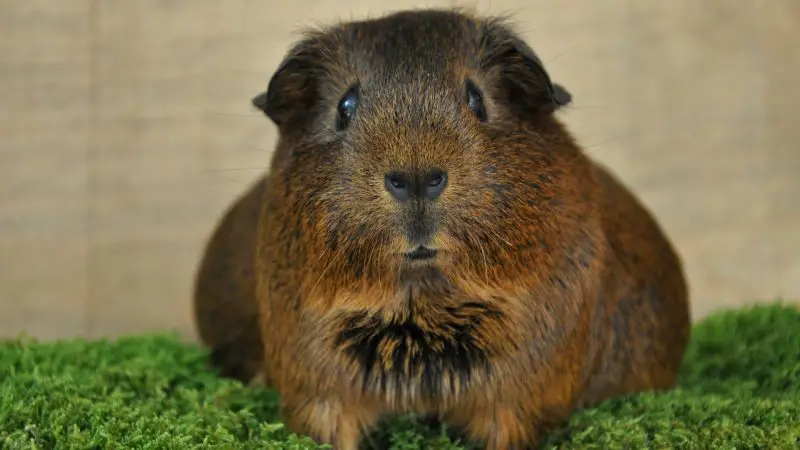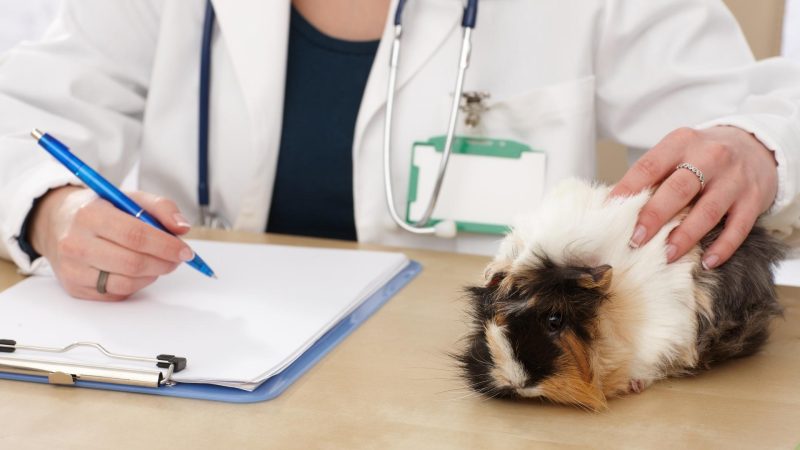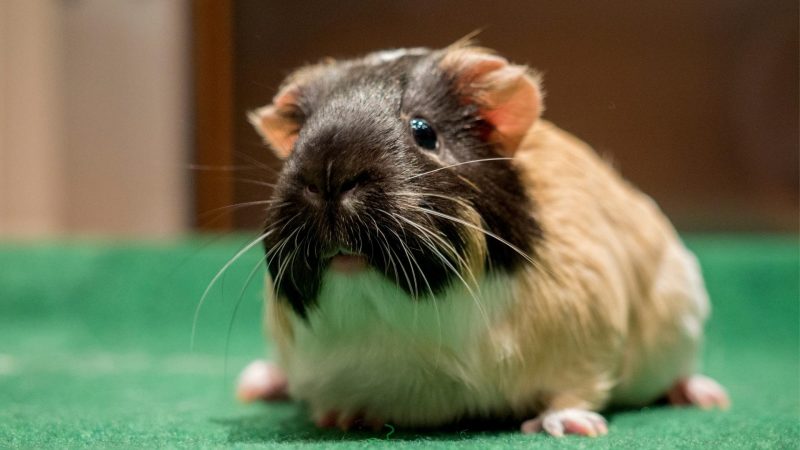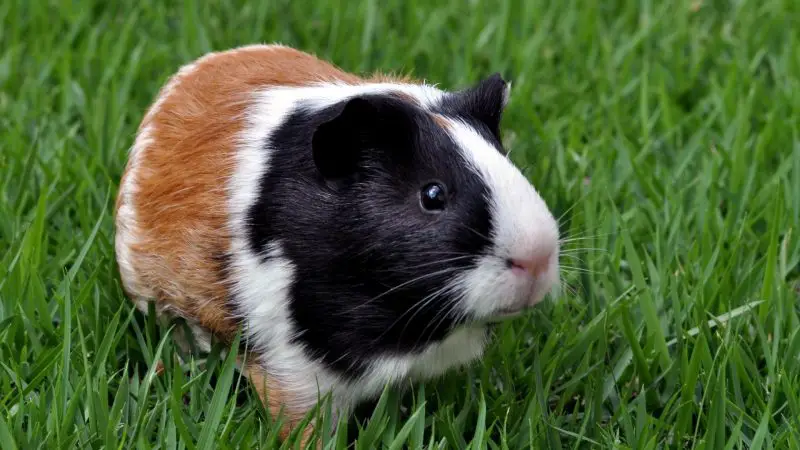In every way, guinea pigs are similar to us humans. The same can be applied to the accumulation of gases in our bodies. If you ever heard a strange sound coming from a guinea pig followed by a smell, you probably figured out exactly what happened.
Can guinea pigs fart? Guinea pigs can fart. They are very similar to people and farting can occur when we least expect it. The most common reason for farting is bloat and gases produced during the digestive process in our stomach. If you’ve heard a quiet or even a loud fart coming from your guinea pig cage, that’s probably your guinea pig.
Every mammal can fart, including our domestic animals, such as dogs and cats. Let’s examine why guinea pigs fart and what you can do about it if it presents a problem for you.
Table of Content
Bloat and Gas in Guinea Pigs | Everything You Need to Know
Occasional farting isn’t something to worry about. It can happen to your guinea pig if it ate too much or from certain food that causes flatulence. However, if constant gases persist, it can become a serious condition that needs to be treated.
Every mammal has a certain amount of intestinal gas, which is a byproduct of digestion. Since guinea pigs don’t have the ability to pass the gas whenever they want to. The buildup in the intestines can lead to bloat.
Even people can experience bloat, especially when you don’t let out the gas (fart). When holding the intestinal gas in yourself, you become more and more bloated and your stomach starts to hurt, you lose the appetite, you can’t eat, and you can’t even function normally.
The same thing happens to guinea pigs and it can be very dangerous. That’s why you need to watch out for the symptoms that we’re going to mention in just a minute.
Causes of Gas and Bloat in Guinea Pigs

The first reason is the excessive gas buildup in the intestines, which can potentially be fatal. This causes the guinea pig’s belly to become bloated and can produce gut-wrenching pain.
However, there is another cause for this and it’s far more dangerous – intestinal twisting (volvulus). Intestinal twisting is a condition where the intestines twist and cause intestinal blockage. This state is very dangerous and can disrupt the normal digestion process in the stomach.
Intestinal twisting can especially be deadly if not treated well. The triggers include viruses, parasites, bacteria, and hairball impaction. Some researchers say that certain food can produce this condition, as well as excess gas that causes farting.
That’s why you need to pay special attention to your guinea pig. If it farts rarely, there should be no worrying signs but if the farting occurs numerous times a day, it’s time to visit the vet.
Symptoms
Aside from constant farting, symptoms of bloat and gas can vary. One noticeable symptom is the distended and swollen belly. If you notice that your guinea pig is wider in the rib cage area, that’s a sign that the belly is swollen.
Since your guinea pig can get a swollen belly from overeating, it’s not always a reason to worry. But, if this persists for two or three days, it’s time to visit the vet. The guinea pig might have a gas buildup which may need to be treated.
Other noticeable signs include:
- Lack of appetite
- Weakness
- Restless movements
- Stoppage of bowel movements
- Heavy breathing
You’ll immediately notice if your guinea pig refuses to eat in the same amount that it used to eat. In fact, some guinea pigs will even refuse to eat at all!
Weakness is also a pretty common symptom. Your guinea pig will refuse to play with you and will spend its day laying down or resting in the corner of the cage.
Heavy breathing can also be noticed if you pick up your guinea pig and examine it closely. Breathing should be normal, following bowel movements. If that is not the case and your guinea pig struggles to breathe, it’s definitely time to pick it up and visit the vet.
Treatment

When it comes to bloat and gas, treatments can vary from invasive to non-invasive methods. Non-invasive methods include anti-gas medications in conjunction with antibiotics in order to restore normal intestinal function.
Some vets might prescribe only anti-gas medications or only antibiotics, depending on the state of the disease. Pain medications are also prescribed very often, as bloated bellies tend to hurt.
Invasive procedures include surgery but it’s rarely conducted as bloat can repeat numerous times through life. While the bloat can be fixed with the medication, the prognoses are difficult to determine.
Vets can fix the situation once it happens but there’s no guarantee that the bloat will not return once again. Luckily, only 20% of guinea pigs suffer from this condition.
Food to Avoid
Some foods can produce excessive gas in your guinea pig’s belly. However, these foods are still safe for your guinea pig but need to be given in a reduced amount. Here are the foods that cause bloat and gas in guinea pigs:
- Broccoli
- Collard Greens
- Cauliflower
- Peppers
- Bok Choy
- Cabbage
- Radicchio
It’s strange to see cabbage and broccoli on this list since many guinea pig owners feed their pigs with some of these foods. But, broccoli and cabbage can sometimes be very hard to digest despite their generous amount of fiber. Still, be sure to give your guinea pig some of these from time to time, but never give them a huge serving size.
The most common food to give your guinea pig is hay. Hay is great for your guinea pig and they can eat it always. Make sure to include some high-fiber foods to make the digestion process easier.
Water is great for flushing out the intestines and you should always have plenty of freshwater for your guinea pig. Some fruit is also great and we suggest that you give it a small portion of pineapple.
How to Prevent Excessive Farting in Guinea Pigs?

The good way to do it is to avoid foods that make your guinea pig bloated. We mentioned some of the foods below but not every guinea pig is the same. Hence, not every food is going to function the same in every guinea pig.
While high-fiber food works well and makes the digestive process much easier, an excessive amount of fibers can produce gas and bloat. Fibers are here to circulate through the intestines and make the food easier to digest.
Soluble fibers are the best type of fibers for making the digestive process easier. Broccoli, carrots, and apricots have a lot of soluble fibers in them. You can include some of these foods occasionally since broccoli has a tendency to produce bloat.
Preventing excessive farting is really all about food and water. Intestines are here to process the food and if they aren’t functioning well, it’s definitely bad food that the pig has eaten. Water can also produce various stomach conditions in which your guinea pig can fart a lot or even have diarrhea.
What If Your Guinea Pig Doesn’t Fart at All?

Farting is healthy and promotes eliminating excessive gas from the intestines. However, your guinea pig can also not fart at all and this can be a serious condition. As we mentioned earlier, a guinea pig can suffer from intestine twisting (volvulus) which prevents the gas from leaving the belly.
If intestines are twisted, there isn’t a way for the gas to leave. In this case, you can apply some of the treatments above. Take your guinea pig to the vet and he/she’ll probably prescribe some antibiotics and anti-gas drugs.
Should You Be Worried When Your Guinea Pig Farts?
In a vast majority of cases, you shouldn’t be worried if your guinea pig farts. Farting can be really healthy, as it lets your guinea pig eliminate the amount of gas that’s been in the intestines.
Farting too often, with a bloated belly is a cause for concern. Remember to always examine the guinea pig if you notice a change in behavior. This will help you stay on track and determine the cause of farting as soon as possible.
Also, remember that food plays an important role in your guinea pig’s digestive tract health. Always evade foods that make your guinea pig bloated and instead opt for high-fiber food.
You must take excessive farting in guinea pigs seriously, as it can cause some serious problems if not treated on time.
